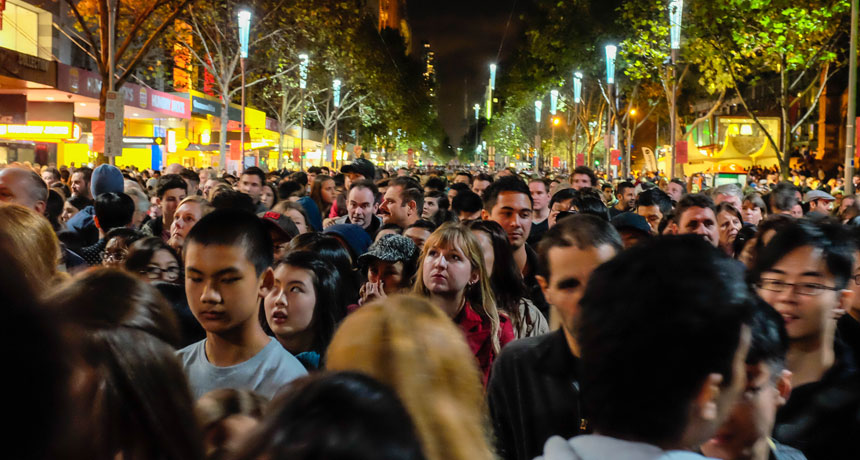Scientists Say: Social
We use this word every day, but what does it really mean?

People are social and constantly interacting with each other, often whether they want to or not.
Scott Creswell/Flickr/(CC BY 2.0)
We use this word every day, but what does it really mean?

People are social and constantly interacting with each other, often whether they want to or not.
Scott Creswell/Flickr/(CC BY 2.0)